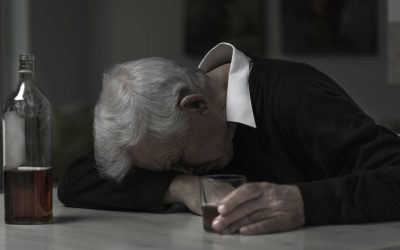Rhinophyma has historically been referred to as alcoholic nose due to the incorrect belief that alcohol consumption may lead to the condition. That said, alcohol and caffeine can both temporarily dilate blood vessels, which seems to worsen rhinophyma. While misusing alcohol over a prolonged period of time may not be likely to cause an alcoholic nose, there are many other ways alcohol can affect your body.
Treatments For Rhinophyma Or Alcoholic Nose
Topical retinoids might also be recommended for anyone who catches the condition in its early stages. While anyone can develop rhinophyma, it’s most commonly reported in white males, especially over age 50. Experts theorize that androgenic hormones found in males may trigger rhinophyma.
- If these medications don’t work, a plastic surgeon can use different surgery techniques to change the shape of your nose and improve your breathing.
- Some effects of alcoholic face, like spider veins, can’t be reversed without cosmetic procedures like laser therapy.
- Sebaceous glands are typically colonized with bacteria, which can contribute to inflammation when they become plugged.
- While it may contribute to rhinophyma or “drinker’s nose,” it probably doesn’t cause it.
- In rare instances, a doctor may perform a biopsy to test the rhinophyma, but this is typically only done in cases of rhinophyma that have not responded to treatments.
Is A Big Nose A Sign Of Alcoholism?
If inflammation is present because of a bacterial infection, then oral antibiotics such as tetracycline may be prescribed to manage the infection. However, multiple methods might be recommended to manage the thickened skin. Keep reading to learn the real causes behind rhinophyma and how to put an end to the damage.

Alcohol Addiction Treatment at The Hope House
Alcoholic nose or rhinophyma is a rare condition that typically affects Caucasian men between 50 and 70. It’s been a long-held belief that alcohol abuse causes this skin disease, but recent findings have revealed that this is actually a skin condition called rhinophyma. An alcoholic nose or a “whiskey nose” is a slang term used to describe a red nose or bumpy nose considered to be caused by excessive alcohol consumption. In any case, using the medical term for alcoholic nose is a helpful way to stop spreading misinformation and decrease the stigma surrounding rosacea.
For more advanced forms of rhinophyma, the most effective way to manage thickened skin is almost exclusively through physically removing excess tissue. Sometimes, this can include relying on ablative lasers or electrical currents (a treatment known as diathermy) to help remove excess tissue. Not everyone with rosacea who develops thickened skin will go on to develop rhinophyma. But for people who do, having chronic infections is common, since fluids in the skin ultimately trap bacteria.
Rhinophyma (enlarged nose)

If you’re looking for information about the condition known as alcoholic nose or drinker’s nose, here are answers to some of the most frequently asked questions. So, alcohol may not be the primary cause of “alcoholic nose.” However, it does cause red, inflamed skin and can trigger rosacea and rhinophyma. When you’re dehydrated, that can show up on your face in the form of dry, flaky skin, more visible signs of aging, or flare-ups of skin conditions like psoriasis and eczema. This is thanks to the same enlarged blood vessels that cause facial redness.
Treatment For Alcohol Nose
- People who have this medical condition usually have a red nose that is swollen and bumpy, and which probably looks worse during a period of heavy drinking and chronic alcohol use.
- Once the signs of an alcoholic nose are present, it is difficult to make them go away without the use of certain treatments.
- One way to help people seek the treatment they need and help them live out healthier and better futures is to provide people with the whole story and clear information.
- If you’re concerned about the effects of alcohol on your nose, it’s essential to talk to your doctor.
- While “alcoholic nose” is not a medical condition requiring treatment, rhinophyma can be treated.
While there is no cure for rhinophyma or rosacea, there are several treatments that can help reduce the symptoms and appearance of both conditions. Rhinophyma is a type of skin disorder that is considered to be a subtype of rosacea. In addition to this, there are https://oval.ru/ars/083079084.html other ways to help treat the redness and thickened skin of your nose. There are creams and various skincare products that can help with the appearance. Certain skincare products which are medically approved can help reduce redness caused by flare-ups.

Drinking can increase the effects of existing rosacea and may increase the risk of this condition developing. However, many people who use alcohol heavily do not develop rosacea, and rosacea does often occur in people who do not drink alcohol or only use it in moderation. Alcoholic nose is a slang term used to describe the red, swollen nose that is thought by some to accompany chronic http://mpilot.ru/items1-view-11223.html alcohol use. While this stereotype does have some element of truth to it, there is some debate on how much alcohol actually affects the appearance of your nose. Your doctor will treat early rhinophyma with oral medications, such as antibiotics or isotretinoin.
Instead, if an individual has rosacea and drinks often, they might trigger more rosacea flare-ups, which can lead to increased thickening of the skin on their nose. The Mayo Clinic reports that over a long period of time, rosacea can thicken the skin of the nose. This thickening of the nose causes it to become more bulbous, which is the condition you now know as rhinophyma. Although rosacea itself is https://www.lifestyll.com/how-to-plan-for-a-pet-safe-holiday/ more common in women than men, the specific side effect of rhinophyma happens more often in men than women.





